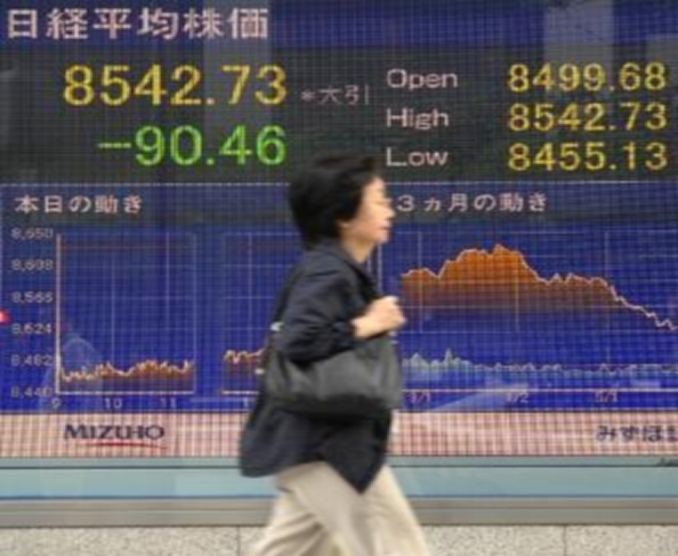
In the global economic map, the Tokyo stock market, as one of the important financial markets in Asia and even the world, its every fluctuation affects the nerves of global investors. Recently, the Tokyo stock market suffered another sharp decline, this phenomenon has not only triggered widespread attention and discussion in the market, but also prompted us to delve into the multiple reasons and deep logic behind it. This article will comprehensively analyze the complex background of the plunge of the Tokyo stock market from the global economic environment, Japan's domestic economic situation, policy factors, market sentiment and international political situation.
First, we cannot ignore the profound impact of the global economic environment on the Tokyo stock market. In recent years, global economic growth has slowed down, trade protectionism has risen, and the multilateral trading system has faced challenges, which together constitute the uncertainty of the external environment for the Tokyo stock market. In particular, the weakening momentum of global economic growth and lower growth expectations of major economies have led to cautious international capital flows and reduced risk appetite. In this context, investors' willingness to invest in risky assets such as the stock market has weakened, and the Tokyo stock market is naturally difficult to escape.
The challenges facing Japan's domestic economy cannot be ignored either. Although the Japanese government has implemented a series of economic stimulus policies for a long time, including quantitative easing monetary policy and structural reform measures, the Japanese economy still faces structural problems such as an aging population, weak consumption, and insufficient innovation capacity. These problems limit the growth potential of the Japanese economy and affect market confidence in corporate profitability. In addition, the volatility of the yen has also put some pressure on Japan's export-oriented companies, which has affected the performance of the stock market. When the market is pessimistic about Japan's economic growth prospects, the stock market decline is a concentrated reflection of market sentiment.
Policy factors also played a big role in the Tokyo sell-off. On the one hand, the Bank of Japan's monetary policy adjustment has directly affected market liquidity. If the central bank starts to consider phasing out quantitative easing policies or adjusting interest rates, it will have a significant impact on market funding costs and investor expectations, which will trigger stock market volatility. On the other hand, the direction of government fiscal policy is equally important. The increase or decrease of fiscal expenditure and the adjustment of tax policies will have an impact on the profitability of enterprises and market confidence. In addition, policy uncertainty, such as uncertainty about the direction of policy after the new government takes office, will also exacerbate market concerns and cause the stock market to fall.
Market sentiment and investor psychology are important drivers of stock market volatility. A deterioration in market sentiment contributed to the Tokyo stock market's renewed rout. On the one hand, the pessimistic sentiment of the market is easy to form a "herd effect", leading investors to sell stocks one after another, exacerbating the stock market decline. On the other hand, investors' pessimistic expectations about future economic prospects will also be reflected in their investment decisions, further curbing the upward momentum of the market. In addition, market rumors, gossip, etc., will also exacerbate the panic in the market, causing an impact on the stock market.
The change of international political situation is also one of the important factors affecting the Tokyo stock market. At present, the international political situation is complex and volatile, and geopolitical risks are frequent. Trade wars, geopolitical conflicts, tensions in international relations and other factors will have an impact on market confidence and trigger stock market volatility. For an export-dependent economy such as Japan, changes in international politics have a more significant impact on its economy. Therefore, when the international political situation is tense, investors tend to choose risk-off operations, selling high-risk assets such as stocks, resulting in a decline in the stock market.
Overall, a combination of factors is behind the renewed plunge in the Tokyo stock market. The gloomy global economic environment, the challenging domestic economic conditions in Japan, the multiple effects of policy factors, fluctuations in market sentiment and investor psychology, and the disturbance of the international political situation all constitute a complex phenomenon. In the face of fluctuations and challenges in the stock market, we need to remain calm and rational, in-depth analysis of the causes and trends of market changes, in order to make more informed investment decisions.

Driven by the Trump administration's push to relax financial regulations and the recovery of investment banking business, the market value of the six major banks in the United States has cumulatively increased by approximately 600 billion US dollars by 2025.
Driven by the Trump administration's push to relax financia…
On Christmas evening, U.S. President Trump posted on social…
According to multiple foreign media reports, the recent fin…
The middle class, once regarded as the cornerstone of Ameri…
On December 19th local time, the US military launched a lar…
The Boxing Day sunshine should have cast a false glow of pr…